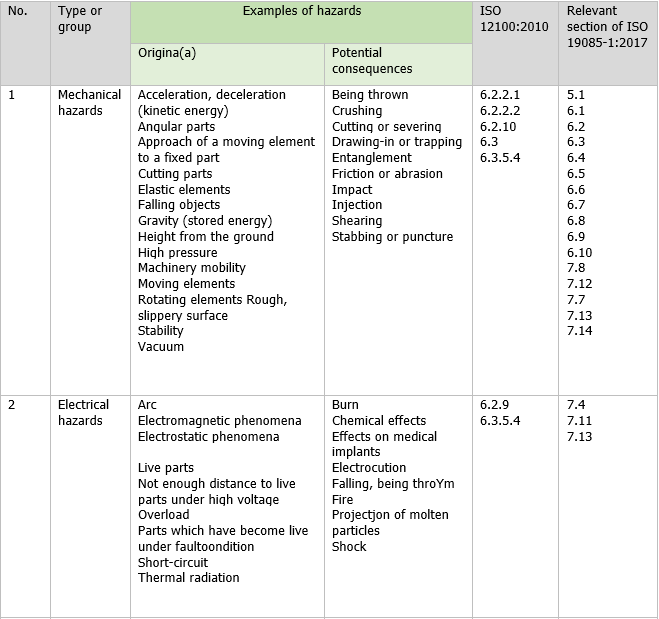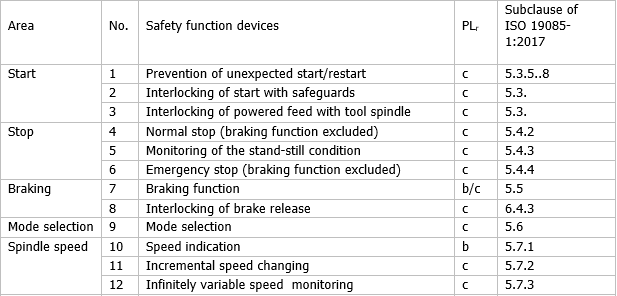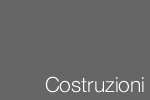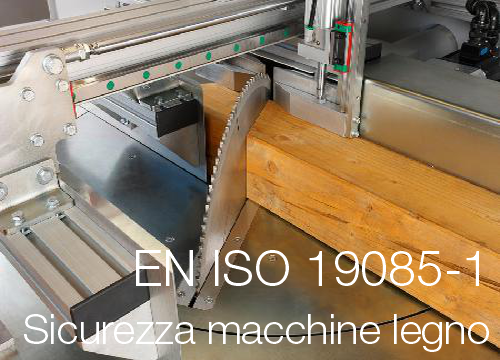EN ISO 19085-1:2017 | 1a Pubblicazione di armonizzazione
Documento Preview sulla norma EN ISO 19085-1:2017 Sicurezza macchine legno: la norma dei requisiti comuni armonizzata Direttiva macchine (1a pubblicazione Marzo 2018)
Il Documento Preview illustra:
1. L'indice della norma;
2. Lista dei pericoli significativi relazionati EN ISO 12100
3. Performance Level (richiesto) delle funzioni di sicurezza principali
Con la comunicazione UE delle norme armonizzate per la Direttiva macchine 2006/42/CE di Marzo 2018 [Com. 2018/C 092/01 del 09 Marzo 2018], è entrata in regime di armonizzazione la norma tecnica EN ISO 19085-1:2017 Macchine per la lavorazione del legno - Sicurezza - Parte 1: Requisiti comuni (ISO 19085-1:2017)
La norma, di tipo C, fornisce i requisiti di sicurezza e le misure per la riduzione dei rischi relativi alle macchine per la lavorazione del legno durante il funzionamento, la regolazione, la manutenzione, il trasporto, l'assemblaggio, lo smantellamento, la disattivazione e la demolizione e che sono comuni alle macchine utilizzate nell'industria della lavorazione del legno. Essa è applicabile alle macchine per la lavorazione del legno, fisse e movibili quando esse sono utilizzate come previsto e nelle condizioni previste dal fabbricante.
La norma adotta l'equivalente ISO 19085-1:2017.
Data armonizzazione: 14 Marzo 2018
Fonte UNI
http://store.uni.com/catalogo/index.php/iso-19085-1-2017.html
Foreword
Introduction
1 Scope
2 Nonnative references
3 Terms and definitions
4 List of significant hazards
5 Safety requirements and measures for controls
5.1 Safety and reliability of control systems
5.2 Control devices
5.3 Start
5.4 Safe stops
5.4.1 General
5.4.2 Normal stop
5.4.3 Operational stop
5.4.4 Emergency stop
5.5 Braking function of tool spindles
5.6 Mode selection
5.7 Spindle speed changing
5.7.1 Spindle speed changing by changing belts on the pulleys
5.7.2 Spindle speed changing by incremental speed change motor
5.7.3 Infinitely variable speed by frequency inverter
5.8 Failure of any power supply
5.9 Manual reset control
5.10 Enabling controL
5.11 Machine moving parts speed monitoring
5.12 Time delay
6. Safety requirements and measm·es for protection against mechanical hazards.
6.1 Stability
6.1.1 Stationary machines
6.1.2 Displaceable machines
6.2 Risk ofbreak·up during operation
6.3 Tool holder and tool design
6.3.1 General
6.3.2 Spindle locking
6.3.3 Circular saw blade fixing device
6.3.4 Flange dimension for circular saws blades
6.4 Braking
6.4.1 Braking of tool spindles
6.4.2 Maximum run·down time
6.4.3 Brake release
6.5 Safeguards
6.5.1 Fixed guards
6.5.2 Interlocking movable guards
6.5.3 Hold-to-run control
6.5.4 Two-hand control
6.5.5 Electro-sensitive protective equipment (ESPE)
6.5.6 Pressure-sensitive protective equipment (PSPE)
6.6 Prevention of access to moving parts
6.6.1 General
6.6.2 Guarding of tools
6.6.3 Guarding of drives
6.6.4 Guarding of shearing and/or crushing zones
6.7 lm pact hazard
6.8 Clamping devices
6.9 Measures against ejection
6.9.1 General
6.9.2 Guards materials and characteristics
6.10 Work-piece supports and guides
7 Safety requirements and measures for pratection against other hazards
7.1 Fire
7.2 Noise
7.2.1 Noise reduction at the design stage
7.2.2 Noise emission measurement
7.3 Emission of chips and dust
7.4 Electricity
7.4.1 General
7.4.2 Displaceable machines
7.5 Ergonomics and handling
7.6 Lighting
7.7 Pneumatics
7.8 Hydraulics
7.9 Electromagnetic compatibility
7.10 Laser
7.11 Static electricity
7.12 Errors of fitting
7.13 Isolation
7.14 Maintenance
8 Information for use
8.1 Warning devices
8.2 Marking
8.2.1 General
8.2.2 Additional markings
8.3 Instruction handbook
8.3.1 General
8.3.2 Additional information
Annex A (informative) Performance level required
Annex B (nonnative) Test for braking function
Annex C (normative) Stability test for displaceable machines
Annex D (nonnative) Impact test for guards
Annex E (normative) Noise emission measurement for machines not in ISO 7960:1995
Bibliography
2. List of significant hazards
3. Performance level required (Annex A. Informative)
This annex gives a quick-view summary of the performance level required (PLr) for each safety function (see Table A1). However, for full requirements and detailed explanations, refer to Clauses 5 and 6.
Table A.1 - Safety functions and their PLr
segue
Riservato Abbonati normazione/3X/4X/full




















